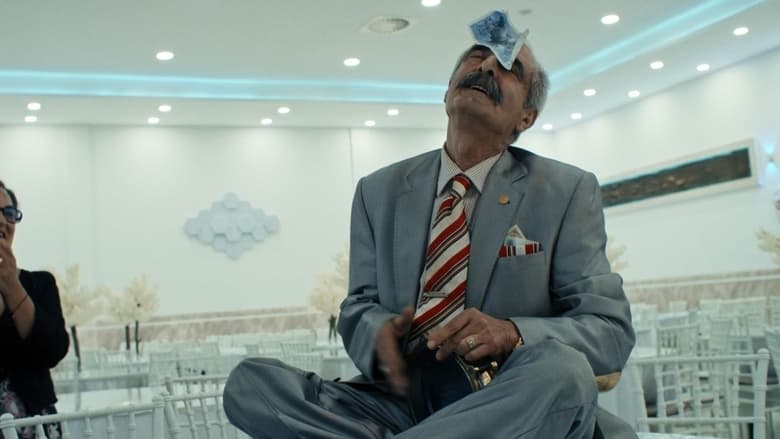

Love, Deutschmarks and Death
A Music Film in German and Turkish
Genres
Overview
Cem Kaya’s dense documentary essay celebrates 60 years of Turkish music in Germany. An alternative post-war history that is at the same time a musical Who’s Who – from Yüksel Özkasap to Derdiyoklar and Muhabbet.
Details
Budget
$0
Revenue
$0
Runtime
98 min
Release Date
2022-10-06
Status
Released
Original Language
Turkish
Vote Count
18
Vote Average
8.056
İsmet Topçu
himself
Ömer Boral
himself
Yüksel Ergin
himself
İhsan Ergin
himself
Metin Türköz
himself
Adnan Türköz
himself
Yüksel Özkasap
herself
Cevdet Yıldırım
himself
Cavidan Ünal
himself
7.3
Goering's Catalogue: A Collection of Art and Blood
For more than a decade, Reichsmarschall Hermann Goering, Adolf Hitler's right-hand man during the infamous Third Reich, assembled a collection of thousands of works of art that were meticulously catalogued.
2021-03-14 | fr
5.3
Hallo, Munich
The rut of Dalmatian hinterland changes with the arrival of returning guest workers, and things they bring along: cars, radios and new way of life.
1968-04-01 | sh
6.8
Merkel
Driven by extensive archive material and interviews with those who know her, this is the astonishing story of how a triple outsider – a woman, a scientist, and an East German – became the de facto leader of the “Free World”, told for the first time for an international audience.
2022-11-24 | de
7.0
Karajan: Portrait of a Maestro
An account of the life and work of controversial German orchestra conductor Herbert von Karajan (1908-89), celebrated as one of the greatest musicians of the twentieth century.
2019-09-22 | de
0.0
Nazi-Karrieren in der DDR?
It was a foundational myth of the GDR that it was anti-fascist and free of Nazis. But was that really the case? The film takes a critical look on the actual way the brown heritage was dealt with in the GDR.
2016-11-29 | de
6.0
DDR - die entsorgte Republik
2019-10-02 | de
0.0
Vor Zurück Zur Seite Ran
2023-11-17 | de
0.0
Die Geburt der deutschen Nation: 1806-1849
TV-Documentary on German history
1989-01-01 | de
6.0
Die Dichter und die Räterepublik
Documentary film with play scenes about the rise and fall of the short-lived Bavarian Soviet Republic in 1919 from the perspective of various well-known poets and writers who experienced the events as contemporary witnesses.
1990-01-01 | de
0.0
Verbotene Liebe - Queere Opfer der NS-Diktatur
Sexual minorities were oppressed, imprisoned and murdered by the Nazis. Paragraph 175 criminalized homosexual men during the Nazi era – but the Nazis also discriminated against lesbians and trans people. They should be excluded from the national community. More than 50,000 queer people have been proven to have been persecuted. The documentary highlights three poignant fates in the context of Nazi terror.
2024-01-16 | de
0.0
Wilhelm II. - Die letzten Tage des deutschen Kaiserreichs
Documentary about the end of the regency of Kaiser Wilhelm II., Germany's last emperor.
2007-01-01 | de
0.0
Landauer: Gefeiert, verbannt, vergessen
Documentary about Kurt Landauer, the long-time Jewish president of FC Bayern München, who led the club to its first German championship, was persecuted and forced out of office by the Nazis, and rebuilt the club after the war.
2014-09-18 | de
6.6
The Wannsee Conference: The Documentary
It was arguably the deadliest conference in human history. The topic: plans to murder 11 million Jews in Europe. The participants were not psychopaths, but educated men from the SS, police, administration and ministries. The invitation to the meeting at Wannsee came from Reinhard Heydrich, head of the Reich Security Main Office. The Wehrmacht's campaigns of conquest in Eastern Europe marked the beginning of the systematic murder of Jews in Poland and the Soviet Union. In mid-September 1941, Hitler made the decision to deport all Jews from Germany to the East. Although there had been transports before, Hitler's order represented a further escalation in the murderous decision-making process. Persecution and discrimination had been part of everyday life since 1933. But as a result, the living conditions for the Jews in the Third Reich became even more difficult, among them the Berlin Jew Margot Friedländer, born in 1921, and the Chotzen family.
2022-01-19 | de
7.4
Ordinary Men: The "Forgotten Holocaust"
Six million Jews died during World War II, both in the extermination camps and murdered by the mobile commandos of the Einsatzgruppen and police battalions, whose members shot men, women and children, day after day, obediently, as if it were a normal job, a fact that is hardly known today. Who were these men and how could they commit such crimes?
2022-01-25 | de
0.0
Die Mutigen 56 - Deutschlands längster Streik
Emma Freese is desperate when her husband Alfred falls ill at the Howaldtswerke in Kiel. How is the family supposed to get by without their wages? The war has scarred this generation, but now things are supposed to be looking up. The workers want their fair share and are fighting for an income that also gives them room to live. In October 1956, 34,000 metalworkers in the shipyards and factories of Schleswig-Holstein walk off the job to fight for justice and their dignity. This strike is still regarded as the toughest and longest in Germany. Employers and politicians stand in the strikers' way.
2024-04-28 | de
0.0
Die Sekretäre
The film talks about the rise and fall of the two most influential protagonists in GDR-politics. In succession, over long stretches even together, Ulbricht and Honecker determined the course of the GDR, of course without ever getting out of being a satellite state to the big brother in Moscow. The film looks for the caesura and crucial points in the power game between Ulbricht and Honecker.
1999-10-07 | de
0.0
Hitler's Putsch: The Birth of the Nazi Party
The night of November 8, 1923, is arguably the most significant and transformative in the history of the twentieth century. A localised uprising in the Bavarian capital of Munich, led by a small man with a toothbrush moustache and a poisonous yet compelling grandiloquence, would have repercussions that would lead to the political shackling of an entire nation, the most abhorrent crimes of the century and a world war. You might say, Adolf Hitler came of age amid the smell of sweat and sawdust of a Munich beer hall. In the political chaos of 1923, he was a local irritant, gaining popularity among workers and soldiers, the ethos of his Nazi Party spreading like a virus. His first attempt at attaining true power came with an attempted putsch on the already separatist government of Bavaria, which left him imprisoned.
2023-03-21 | en
6.6
Das Boot Revisited: An Underwater Success Story
In 1981, a film about the misadventures of a German U-boat crew in 1941 becomes a worldwide hit almost four decades after the end of the World War II. Millions of viewers worldwide make Das Boot the most internationally successful German film of all time. But due to disputes over the script, accidents on the set, and voices accusing the makers of glorifying the war, the project was many times on the verge of being cancelled.
2021-01-10 | de
5.3
Inventory
Tenants of one old building in the centre of Münich are featured in this film: most of them are foreigners who work in Germany as "guest workers" (Yugoslavs, Italians, Turks, Greeks etc.). In their mother tongue, each of them tells who he or she is, and briefly talks about their major worries, new hopes and plans for the future.
1975-01-01 | de
0.0
Der lange Abschied von der Kohle
2017-09-26 | de